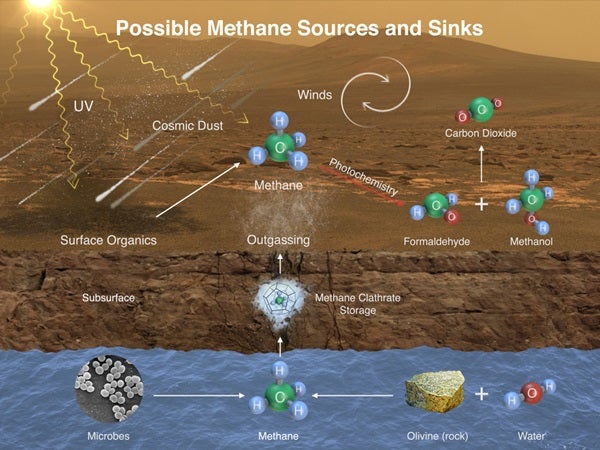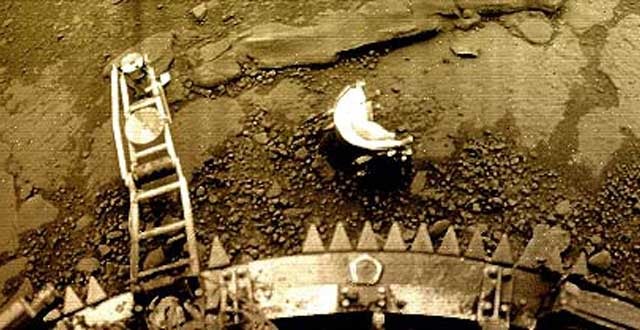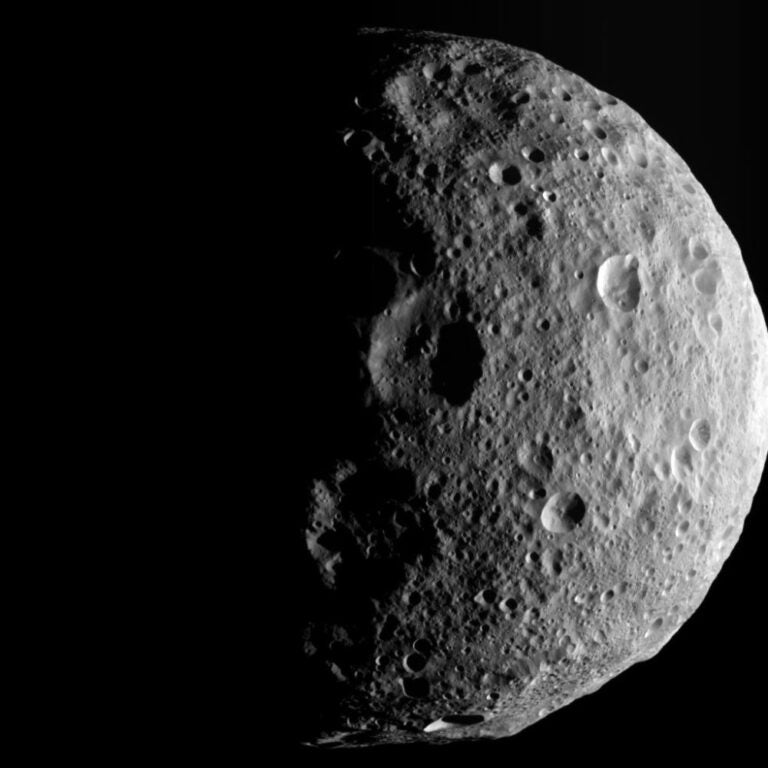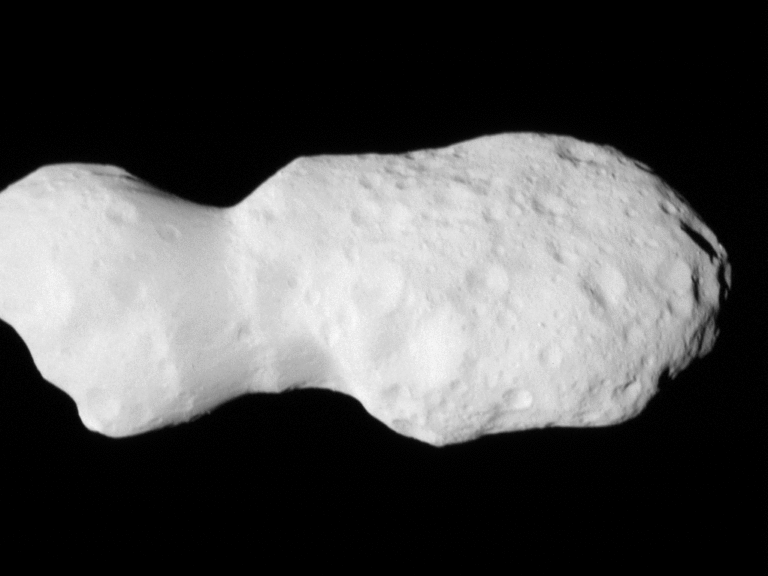The researchers examined samples from six meteorites of volcanic rock that originated on Mars. The meteorites contain gases in the same proportion and with the same isotopic composition as the martian atmosphere. All six samples also contained methane, which was measured by crushing the rocks and running the emerging gas through a mass spectrometer. The team also examined two non-martian meteorites, which contained lesser amounts of methane.
The discovery hints at the possibility that methane could be used as a food source by rudimentary forms of life beneath the martian surface. On Earth, microbes do this in a range of environments.
“Other researchers will be keen to replicate these findings using alternative measurement tools and techniques,” said Sean McMahon from Yale University in New Haven, Connecticut. “Our findings will likely be used by astrobiologists in models and experiments aimed at understanding whether life could survive below the surface of Mars today.”
The discovery was part of a joint research project led by the University of Aberdeen in collaboration with the Scottish Universities Environmental Research Center, the University of Glasgow, Brock University in Ontario, and the University of Western Ontario.
“One of the most exciting developments in the exploration of Mars has been the suggestion of methane in the artian atmosphere,” said John Parnell from the University of Aberdeen. “Recent and forthcoming missions by NASA and the European Space Agency are looking at this; however, it is so far unclear where the methane comes from and whether it is really there. However, our research provides a strong indication that rocks on Mars contain a large reservoir of methane.”
Nigel Blamey of Brock University said the team plans to expand its research by analyzing additional meteorites.
McMahon noted that the team’s approach may prove helpful in future Mars rover experiments: “Even if martian methane does not directly feed microbes, it may signal the presence of a warm wet chemically reactive environment where life could thrive.”










